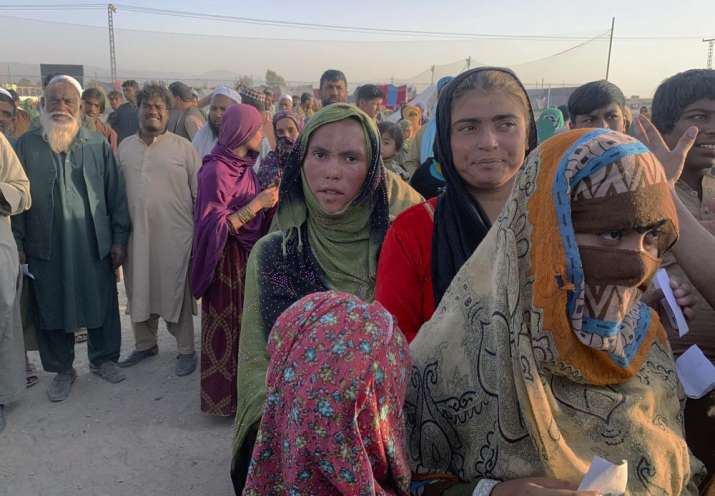
Afghanistan’s Hazara fearful of uncertain future under Taliban rule
Thousands of worshipers gathered in mosques on the outskirts of Kabul on Friday to offer prayers, the first time since the Taliban took over the country. The Hazara community, belonging to the Shia sect, was previously persecuted, killed and ethnically purged by the Taliban and Daesh terrorist groups for being Shia Muslims.
However, with the current and slightly ‘moderate’ new Taliban government, they feel a little safer. But this sense of security also comes with painful fears of the past, making them uncertain about their present and future.
The Hazara community has in the past been a target of not only the Taliban, but also Islamic State (IS) factions. And with the Taliban’s newly formed interim government in place, thousands fear being shut down and wiped out again because the Taliban leadership includes hardline militants, old defenders of Pashtun ethnicity.
“It is largely composed of a single ethnicity. The Taliban government is dominated by Pashtuns. We do not see any Hazara involvement, which is a major concern,” said Hasanzada, a local from the Hazara community.
The Hazara community comprises the country’s Shia minority, while the Taliban leadership comprises the hardline Sunni sect of Islam, which in the past was barbaric to Shias during their last rule in the 1990s.
Thousands have not forgotten one of the country’s most violent attacks on their community, when rallies were bombed, hospitals were targeted and the community was ambushed.
The most recent attack on the Hazara community occurred during June this year, when a suicide bomber linked to Daesh targeted a school and killed hundreds.
Today, thousands are horrified at the sight of Taliban-led security forces, which are now a common sight on the streets of Afghanistan.
“There is no doubt that the people of Afghanistan want an inclusive government that represents all races, followers of all religions and different sections of society,” said Abdul Qadir Alemi, a mosque’s imam (prayer leader).
Another major concern for the Hazara community is the boycott from government offices since the Taliban takeover has left many of them jobless and with no hope of joining the current Taliban-led government.
“There are many people who used to work for the government. They are all unemployed now. There is a lot of worry and worry. It is not that the Taliban are killing us, but it is better to die than to suffocate like this,” Suleiman, a Shia worshiper in the mosque, said.
Sustaining livelihood has become another major challenge for the Shia community under Taliban rule. He says he has yet to see anything bad for his community by the Taliban, with rising prices of basic food items, coupled with unemployment of many community members, pushing them into starvation.
“We haven’t seen anything worse than the Taliban, but there is no work for the people. What should we do about our hunger,” Suleiman asked.
Read also: As the world marks 9/11, the Taliban flag is hoisted in the seat of power
Read also: Taliban flag hoists over Afghanistan’s Rashtrapati Bhavan on the anniversary of 9/11 attacks
.